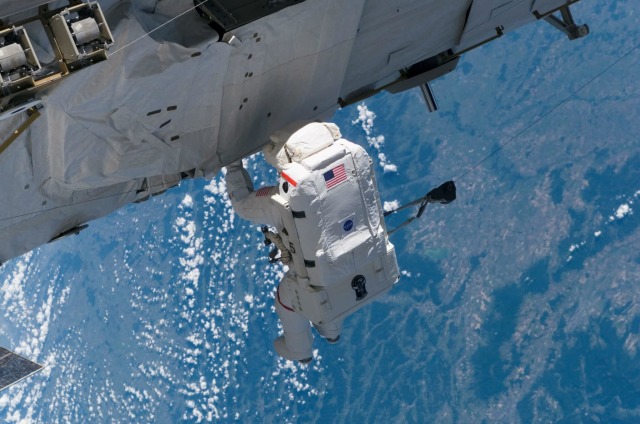The National Aeronautics and Space Administration of the United States believes that anti-Russian sanctions have not affected the work of the ISS, but have created difficulties for Americans working in Russia.
Advisers to the US National Aeronautics and Space Administration (NASA) said that although cooperation with Russia on the ISS continues and the work of the station crew as a whole has not faced "serious interruptions," sanctions against Moscow due to the special operation in Ukraine are beginning to affect some activities.
"Work, education and training in Moscow, which take place and have always taken place within the framework of our international partnership with Russia on the International Space Station, continue without any serious interruptions. Everything looks as it always has. The teams are working together," said the retired former astronaut and lieutenant General of the Air Force Susan Helms .
According to her, astronauts have no problems with obtaining Russian visas and access to the Star City in the Moscow region, where the Cosmonaut Training Center (the Gagarin Cosmonaut Training Research and Testing Center) is located, which has modern complexes of simulators for the ISS orbital modules and Soyuz manned transport vehicles.
But, Helms stressed, the Russian-American partnership has begun to feel the impact of sanctions that the United States, the European Union and some other countries have imposed against Moscow. "The geopolitical sanctions imposed on Russia <...> have created an environment in which some administrative difficulties become apparent," she said, stressing that this especially affects NASA employees.
As an example, Helms cited some fairly mundane points: travel restrictions (in recent months, international airlines have sharply reduced or even suspended flights to Russia); the inability to use bank cards (Visa, MasterCard and American Express stopped working and operations in Russia in early March). In addition, some employees of the US Space Agency and their families "voluntarily" left Russia.
Nevertheless, the advisers support the idea of exchanging seats on ships: for astronauts to fly to the ISS on Soyuz, and for Roscosmos cosmonauts to fly on SpaceX's Crew Dragon. However, the decision on "cross-flights" has not yet been made: as Joel Montalbano, the head of the American ISS program, said a few weeks ago, NASA is still waiting for the Russian Ministry of Foreign Affairs to approve the relevant agreement. Earlier, the exchange program was planned to begin in the fall of 2022, since December, Russian cosmonauts have started training in the United States.
There is a possibility that after 2024 Russia will complete its participation in the International Space Station program. In early April, Roscosmos received responses from the heads of NASA, ESA and CSA to the demand to lift sanctions against the state corporation's enterprises in order to continue cooperation on the ISS, and they turned out to be "carbon copy" and clearly hinted at refusal. According to the head of the state corporation Dmitry Rogozin, the situation will soon be reported to Vladimir Putin, and then the decision will be reported to partners — the United States, Europe and Japan.

